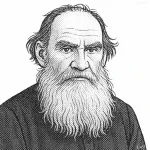“It is lamentable, that to be a good patriot one must become the enemy of the rest of mankind.”

- November 21, 1694 – May 30, 1778
- Born in France
- Philosopher, man of letters, historian
table of contents
Quote
“It is lamentable, that to be a good patriot one must become the enemy of the rest of mankind.”
Explanation
This quote reflects Voltaire’s criticism of nationalism and the often divisive nature of patriotism. He laments that, in many cases, strong allegiance to one’s country can lead to hostility or indifference toward other nations and peoples. Voltaire highlights the moral dilemma of prioritizing one’s own nation to the extent that it fosters conflict or diminishes compassion for the global community.
In modern contexts, this idea resonates in the discourse surrounding nationalism, globalism, and international relations. Patriotism, when taken to extremes, can sometimes foster xenophobia or isolationism, where the interests of one country are pursued at the expense of others. Voltaire’s critique encourages us to balance love for one’s country with a broader sense of humanity, emphasizing the need for global cooperation and mutual respect.
A specific example of this principle can be seen in the rise of populist movements that prioritize national interests, sometimes resulting in tensions with other countries. Such movements often advocate for protectionist policies or a disregard for international agreements, creating divisions rather than promoting collective progress. Voltaire’s quote serves as a reminder to navigate patriotism thoughtfully, ensuring it does not come at the cost of broader human solidarity.
Would you like to share your impressions or related stories about this quote in the comments section?




